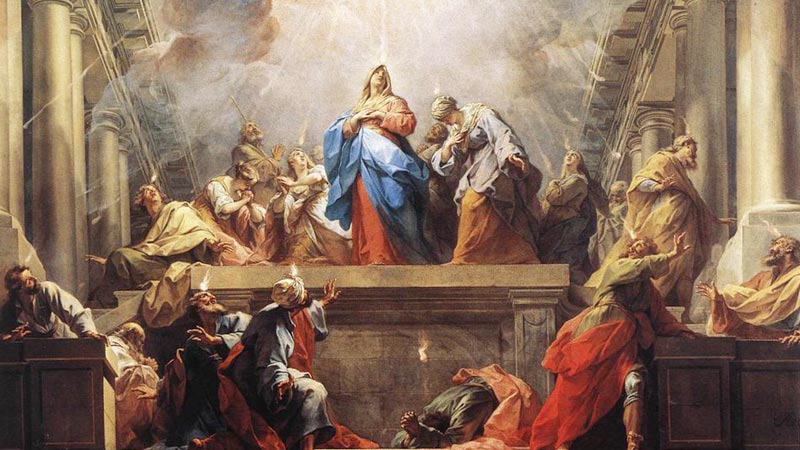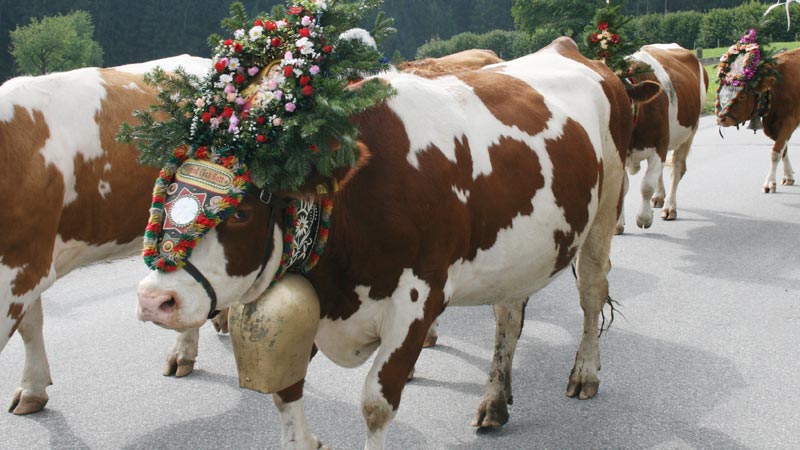Fifty days after Easter Sunday, on was is called “Pentecost”, Christians remember the day when the Holy Spirit came to the earth as Jesus had promised. Since Pentecost is so firmly rooted in Germany’s Christian traditions, the following Monday—or Whit Monday as it is known in Britain—is also a public holiday on which all shops are closed.
The biblical background

The origin of Pentecost comes from an event recorded in the New Testament. In Jerusalem, a cultural centre of the Roman Empire, lots of people had come together to celebrate a feast. Jesus’ friends were meeting in a house, when something strange and wonderful happened. The Bible reports it like this:
Suddenly a sound like the blowing of a violent wind came from heaven and filled the whole house where they were sitting. They saw what seemed to be tongues of fire that separated and came to rest on each of them. All of them were filled with the Holy Spirit and began to speak in other tongues as the Spirit enabled them. (Acts 2:2-4)
The many people who had come to Jerusalem were extremely surprised and shouted: "Aren’t all these who are speaking Galileans? Then how is it that each of us hears them in our native language?" (Acts 2:6-8)
After Pentecost the good news about Jesus spread throughout the world
It was at Pentecost that Christians first received the Holy Spirit. That really meant this: God was now living in them. The small frightened group that had been Jesus’ disciples were now talking in different languages about God’s great deeds. From then on, everyone in the world was to hear about God’s great love for them.
The good news spread rapidly. Lots of people turned their backs on their old way of life. With God, they could let go of their guilt. Now they wanted to begin living a new life. They met regularly in order to learn more about Jesus. They celebrated together and were like one big family. In other words, Pentecost is like the ‘birthday’ of the worldwide Christian community, or Church. And, right from the beginning, it was made up of people of different nationalities.
Pentecost today

Pentecost has been celebrated in the Christian church since the third century, always on the 50th day after Easter Sunday. The Greek word for 50 is pentecoste, which is where the English name for the festival comes from. In Germany, Pentecost is a two-day holiday—Whit Sunday and Whit Monday, as they say in Britain. Churches often hold open-air services on these two days. People come together to celebrate outdoors, because summer is on its way.
In contrast to Christmas or Easter there are only few traditions at Pentecost. Churches are often decorated with young birch twigs and people like to go for a walk or hike. In some parts of Germany they light large bonfires. In rural areas, Pentecost was when the cattle were led out to the fields for the first time after the long winter. There would often be a specially decorated “Pentecost ox” leading the cattle herd into the hills. Some of these traditions have already died out or become rare. Yet as a celebration of the Holy Spirit, Pentecost is still a festival of hope and joy, and we need more of both in our world today!